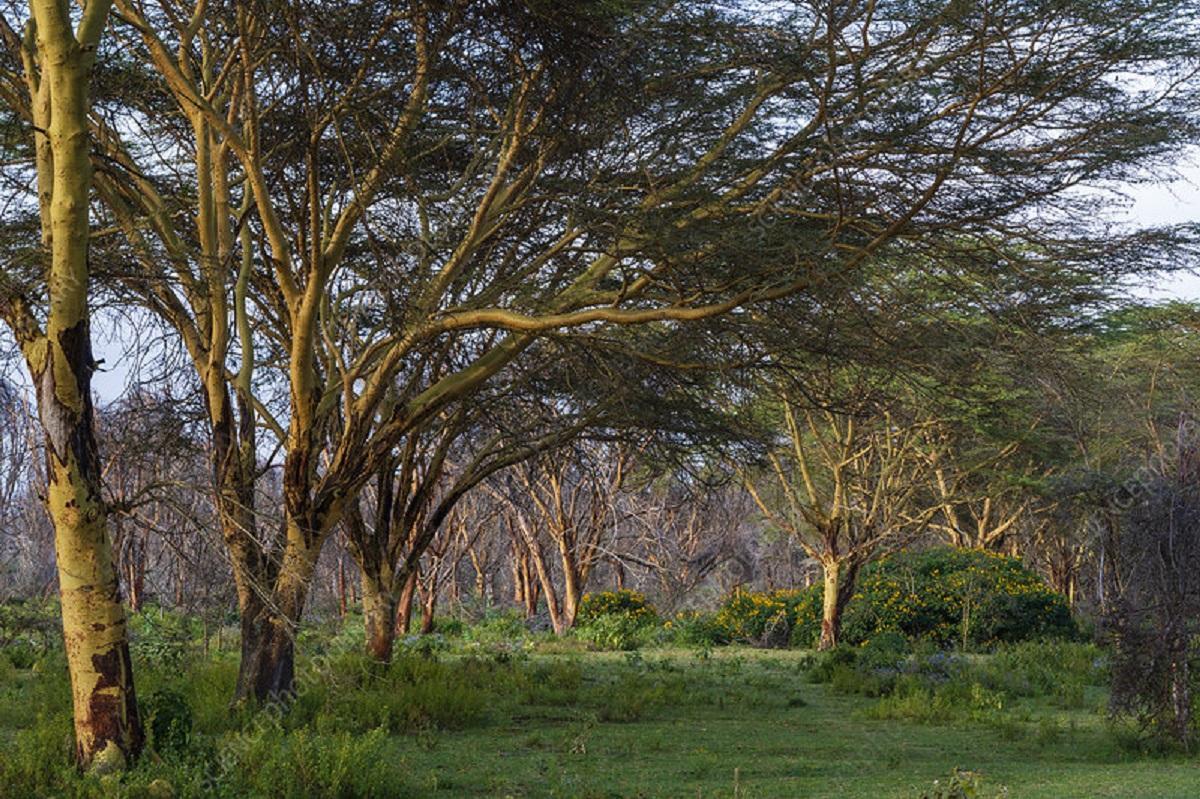Africa-Press – Zimbabwe. Fears are mounting that the iconic acacia tree may soon face extinction in Hwange National Park, as the remaining trees have been severely depleted by elephants.
An ecological crisis is looming, with acacia trees serving as a critical food source for the park’s elephant population.
Hwange, which was designed to accommodate around 15,000 elephants, is now home to over 45,000 — triple its intended capacity. The overpopulation is placing immense pressure on the park’s ecosystem and biodiversity.
Zimbabwe Parks and Wildlife Management Authority (ZimParks) spokesperson Tinashe Farawo has raised the alarm over the worsening situation. Said Farawo:
We have continued to say that our national park is overpopulated. This is creating problems with elephants almost eating up all the acacia trees. If you look around, there are no new trees shooting up, and the consequence could be even bigger soon.
Environmentalists have warned that without natural regeneration, Hwange National Park’s ecological balance could collapse, resulting in widespread food shortages for wildlife and a sharp rise in human-wildlife conflict.
As food becomes scarce within protected areas, elephants are increasingly straying into nearby human settlements, where they damage crops, destroy infrastructure, and sometimes cause fatal encounters.
Just last month, ZimParks was forced to cull three elephants after a herd entered villages in Bulilima District, Matabeleland South Province, destroying drying crops and threatening local livelihoods.
The elephants, shot by ZimParks rangers on Thursday, 26 June 2025, in Madlambudzi Ward, were identified as the leaders of the herd and had become repeat offenders in the area.
For More News And Analysis About Zimbabwe Follow Africa-Press






